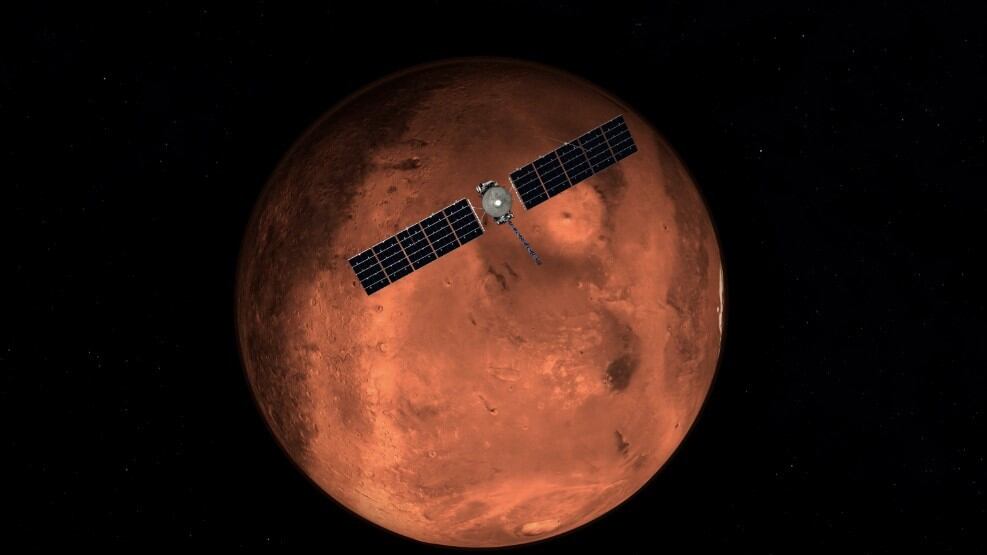The obsession with Mars goes far beyond mere scientific curiosity; it is a combination of survival, dreams forged in science fiction, and the inherent destiny of humanity as an exploring species, which drives us to seek a new home among the stars.
Since the first telescopes revealed its reddish surface, Mars has been the subject of an excessive fascination. The “canals” imagined by Percival Lowell ignited fantasies of Martian civilizations, and although that idea faded, the Red Planet has not ceased to be the epicenter of our exploration dreams. Today, we not only talk about visiting it, but also about establishing a permanent presence, about turning humanity into a multiplanetary species. This ambition is not trivial, given the colossal difficulties it entails; however, the reason for our obsession with Mars is a combination of powerful factors that intertwine.
PUBLICIDAD
The Spark of Life: A Second Genesis?
One of the main reasons for our fascination with Mars is the persistent question about extraterrestrial life. Mars, in its distant past, was a planet much more similar to Earth: it had a denser atmosphere, active volcanoes, and, crucially, abundant liquid water flowing on its surface. NASA’s rovers, such as Curiosity and Perseverance, have found irrefutable evidence of ancient riverbeds, lakes, and minerals that only form in the presence of water.
This makes Mars the most promising place in our Solar System to search for traces of past life, or even present life, in underground niches protected from radiation. Discovering that life arose on two different planets within the same solar system would change our understanding of the universe forever, suggesting that life could be common in the cosmos.
The Planet B: A life insurance for humanity
Beyond science, there is a pragmatic and existential reason to look towards Mars: the survival of our species. Earth, our only known home, is vulnerable.
Global climate change, resource scarcity, pandemics, a large-scale nuclear war, or the impact of a massive asteroid are just some of the threats that could jeopardize humanity’s existence. Establishing a colony on Mars is not just an adventure; it is an insurance policy for humanity, a kind of “backup planet” that could safeguard our civilization in the event of a global catastrophe on Earth. This vision, though dystopian for some, is a powerful motivation for visionaries and space agencies.
The magnet of innovation and the human spirit
The race to Mars is also an incredible driver of technological innovation. The challenges of a months-long journey through deep space, living in a hostile environment with radiation, extreme temperatures, and a thin atmosphere, and the need for self-sufficiency, force engineers and scientists to develop cutting-edge solutions.
From advanced propulsion systems and ultra-efficient water recycling to inflatable habitats and in-situ resource extraction techniques, every obstacle on Mars sparks a burst of creativity that often has direct and beneficial applications for life on Earth.
Furthermore, the exploration of Mars fuels the innate human spirit of exploration and discovery. Since we emerged from caves, humanity has been driven by the desire to go beyond the known horizon. Mars is the next great horizon, the “New World” of the 21st century. It represents the ultimate challenge, a project that unites humanity under a common goal, inspiring generations of scientists, engineers, and dreamers. We are not just looking for rocks or signs of life; we are looking for our own place in the universe, the next step in our evolution as a species. The obsession with Mars is ultimately an obsession with our own future.
